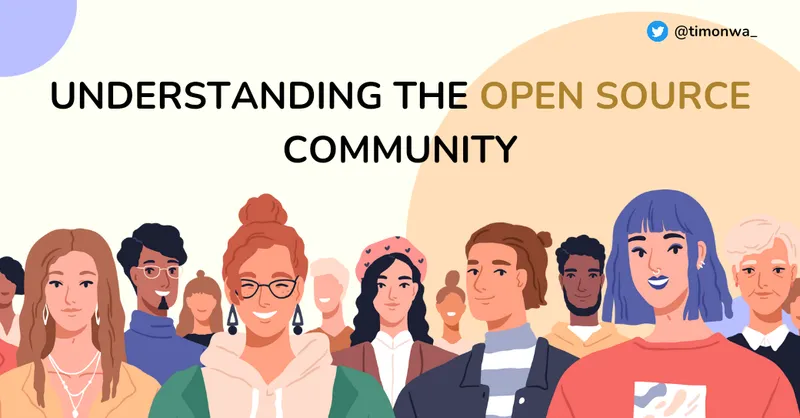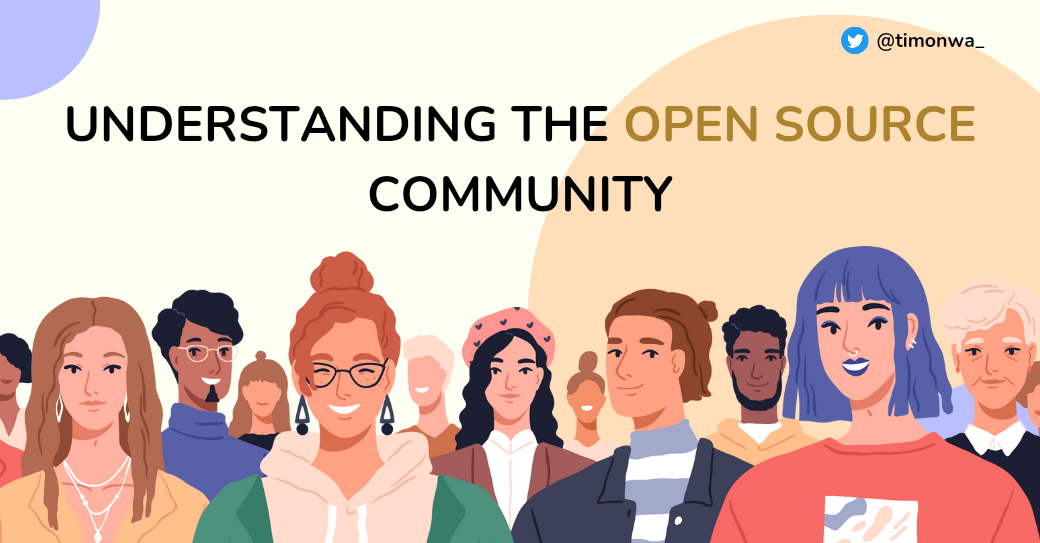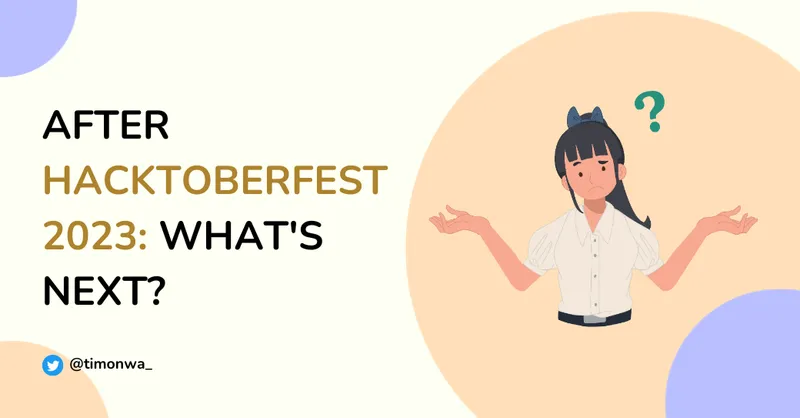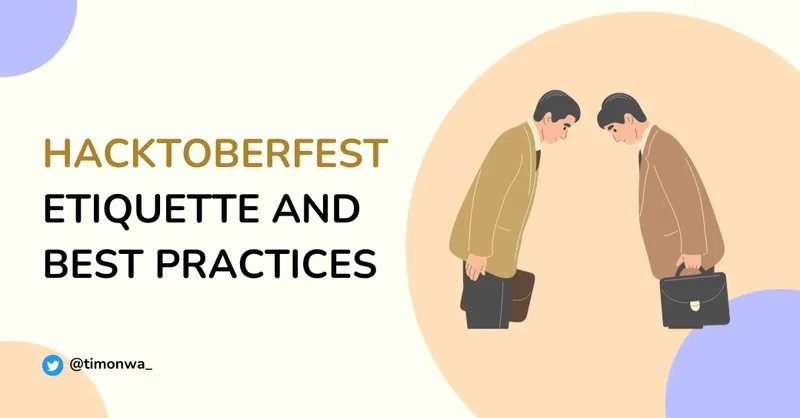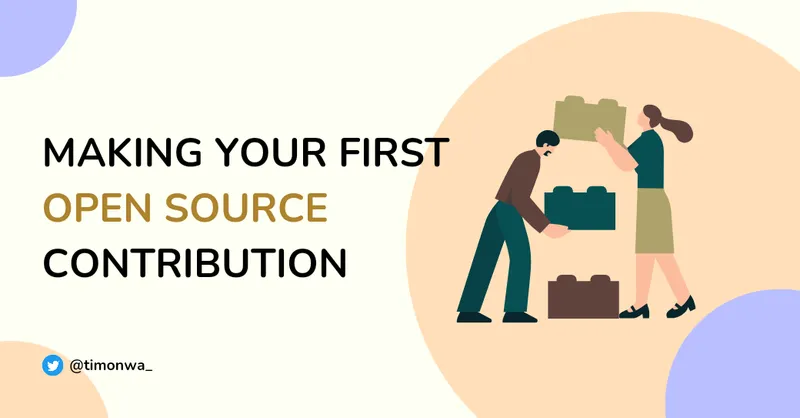You can’t change the world alone—you will need some help— and to truly get from your starting point to your destination takes friends, colleagues, the goodwill of strangers, and a strong coxswain to guide them. ~ William H. McRaven
In the previous articles of our Hacktoberfest preparation series, we’ve covered a lot of ground. We’ve learned what Hacktoberfest is, set up our development environment, found our first projects to contribute to, made our first pull requests, and learned the best practices for contributing to open-source. However, it’s essential to take a step back and delve into one of the most significant aspects of the open-source world—the community.
The community is the heart of open source
Open-source is all about collaboration. It’s a global movement where individuals from diverse backgrounds, cultures, and skill sets come together to build incredible software, tools, and solutions. It’s a world where geographical boundaries blur, and the focus is on the code, not the coder.
The open-source community is a vibrant, collaborative, and inspiring place. It is a welcoming space where people can be themselves and express their ideas freely. You build relationships, share ideas, and create remarkable things together. It’s a place where you can learn, grow, and make a difference.
In the open-source community, collaboration is the key to success. It takes a collaborative effort to build, maintain, and improve projects. Whether it’s a minor bug fix or a significant feature enhancement, it’s a team effort. Each contribution, whether big or small, is a step towards improving open source. It’s a journey of learning, growing, and building remarkable things together.
As a newcomer, you may feel intimidated by the open-source world. You may wonder if you’re good enough to contribute or have the skills to make a difference. The truth is, you don’t need to be an expert to contribute to open source. All you need is a passion for learning and a willingness to help others. The open-source community is a welcoming space where everyone is encouraged to participate, regardless of their skill level or experience. It’s a place where you can learn, grow, and make a difference.
When you contribute to open source, you’re not just contributing to a project but becoming part of a vibrant, collaborative, and inspiring community. You’re joining a global network of like-minded individuals who share a passion for creating, sharing, and improving software. You’re becoming a member of a community that values diversity, inclusivity, and accessibility. You’re becoming a part of something bigger than yourself.
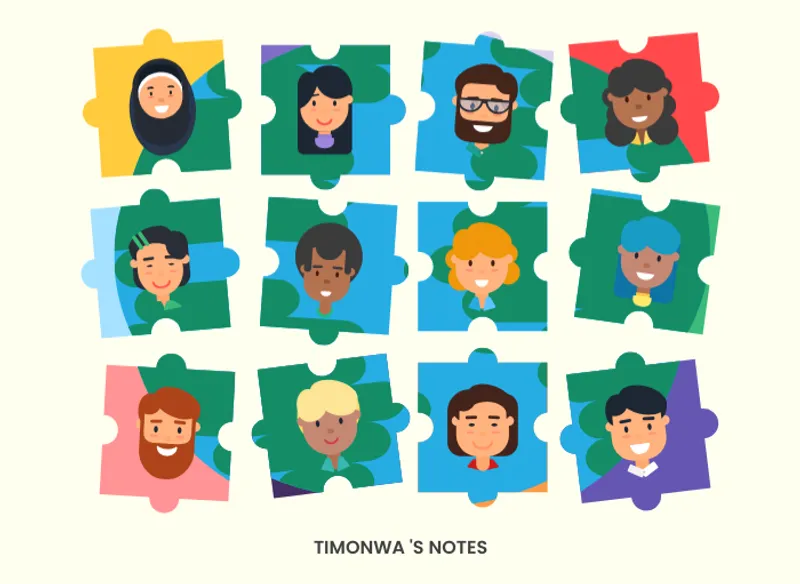
The open-source ecosystem
The open-source ecosystem is a vast, interconnected web of projects, maintainers, contributors, and users. It’s not just about code; it’s about people. Some of the most essential components of the open-source ecosystem are:
1. Projects
Projects are the building blocks of open-source software. They are the software, tools, and solutions created by the community. They are the essence of open source, and their success is vital to the community. Projects come in all shapes and sizes, from small libraries to large frameworks. They are the foundation on which the open-source ecosystem is built.
2. Project maintainers
Project maintainers are the heart and soul of open-source projects. They are responsible for the project’s overall direction, growth, and maintenance. They manage the project’s codebase, review contributions, and ensure its quality and stability. They also foster a welcoming and inclusive environment for contributors and users. Maintainers are the driving force behind open-source projects, and their efforts are invaluable to the community.
3. Contributors
Contributors are the lifeblood of open-source projects. They are the ones who build, maintain, and improve projects. They fix bugs, add new features, and enhance existing ones. They also help with documentation, testing, and design. Contributors are the backbone of open-source projects and are vital to the community.
4. Users
Users are the reason open-source projects exist. They are the ones who benefit from the software, tools, and solutions created by the community. They provide feedback, report bugs, and request new features. Users are the driving force behind open-source projects; their input is invaluable to the community.
5. The Community
The open-source community is a global network of individuals passionate about creating, sharing, and improving software. The community is the heart and soul of open source, and its members are the driving force behind its success.
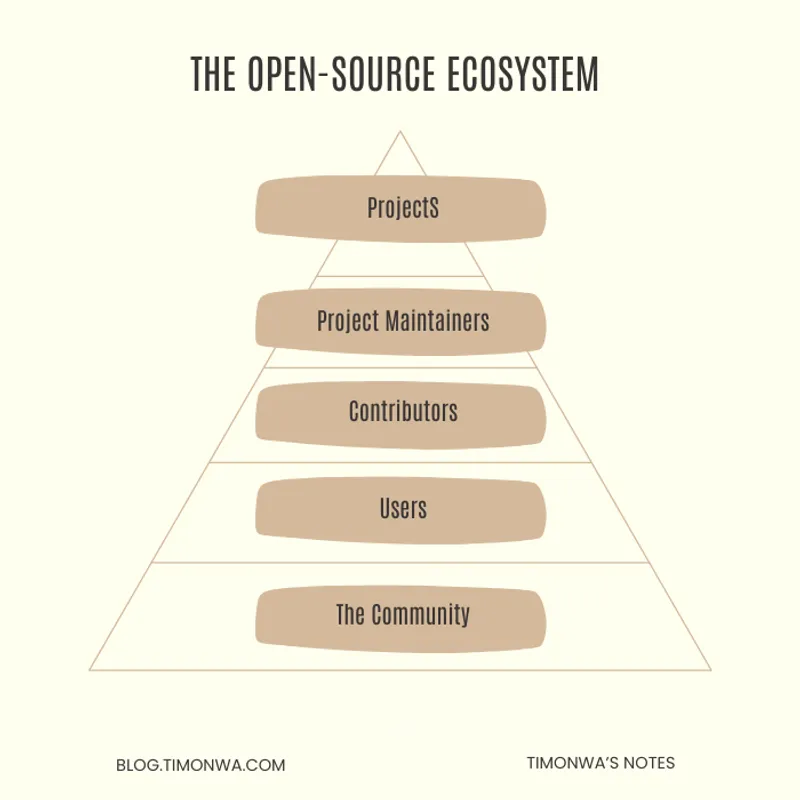
Effective communication in the open-source world
In the open-source world, where individuals from diverse backgrounds unite to create remarkable software, effective communication is the glue that holds this global community together. From sharing ideas and discussing technical decisions to reporting issues and offering feedback, communication is vital to open-source projects. For a community to thrive, its members must be able to communicate effectively.
Communication takes many forms in the open-source world. It can be as simple as asking a question or as complex as discussing a project’s future, so effective communication is essential to the success of open-source projects. It enables contributors to share ideas, discuss technical decisions, and report issues. It also fosters a welcoming and inclusive environment for all participants.
Some of the most common forms of communication in the open-source world are:
1. Documentation
Documentation is an essential part of open-source projects. It helps users understand how to use the software, tools, and solutions created by the community. It also allows contributors to understand the project’s codebase and contribute effectively. An adequately documented project is more accessible to newcomers and easier to maintain. Some of the most common forms of documentation in the open-source world are:
- README files
- Code comments
- Wiki pages
- Tutorials
- Blog posts
2. Issue tracking
Issue tracking is another crucial part of open-source projects. It helps maintainers and contributors keep track of bugs, feature requests, and other project-related matters. It also enables users to report issues and request new features. Issue tracking is also a collaboration between project maintainers, contributors, and users. When done right, it can help improve the project’s quality and stability. Some of the most common forms of issue tracking in the open-source world are:
- GitHub issues
- GitLab issues
- Jira issues
- Trello cards
3. Code reviews
Code review is an integral part of open-source projects. It helps maintainers and contributors ensure code quality and adherence to project standards. It also enables users to provide feedback on proposed changes. This ensures that the project’s codebase is of the highest quality and meets the community’s standards. A well-maintained codebase that adheres to project standards is more accessible to newcomers and easier to maintain. Code reviews are usually done via pull requests. Some of the most common forms of code reviews in the open-source world are GitHub pull requests and GitLab merge requests.
4. Chat platforms
Chat platforms like Slack and Discord are an integral part of open-source projects. They enable maintainers, contributors, and users to communicate in real time. They also foster a welcoming and inclusive environment for all participants. They make community members feel like they’re part of a team.
5. Social media
We are living in a social media world. It’s no surprise that social media platforms like Twitter, Facebook, and LinkedIn are an integral part of open-source projects. They enable the community to communicate in real time, fostering a welcoming and inclusive environment for all participants.
Your role in the open-source community
As a newcomer, it’s natural to feel overwhelmed when entering the open-source world. However, remember that every contributor, no matter how experienced, started as a newcomer. It doesn’t matter if you’re a beginner or an expert; you can always do something to help. You can fix bugs, add new features, improve documentation, or help with testing. You can also share your knowledge by writing tutorials, blog posts, or documentation. Or help others by answering questions on forums, chat platforms, or social media.
And you don’t have to start big to make a difference. You start with as little as fixing a typo in the documentation or adding a missing comma in the code. Even low-code and no-code contributions like design, marketing, and community management are welcome. The important thing is that you’re contributing to open source and becoming a part of the community.
Remember that your role in the open-source community is not limited to coding contributions; it extends to fostering a supportive and inclusive environment for all participants.
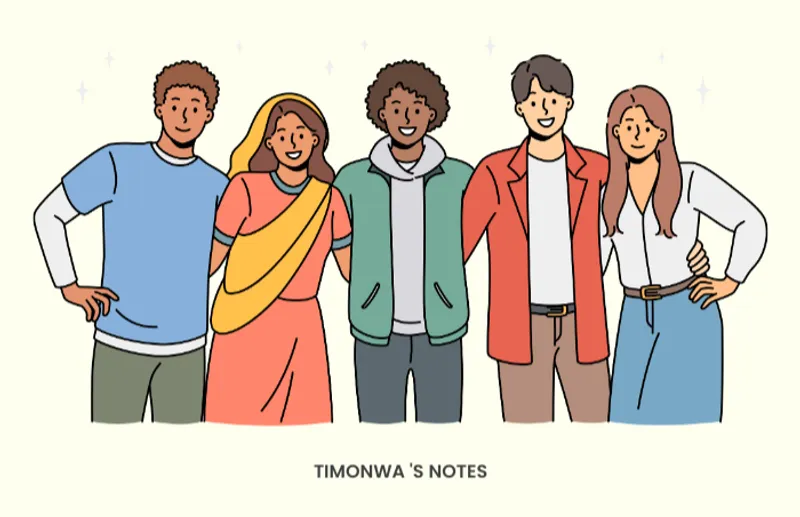
In the open-source community, you’re not alone. You’re part of a global network of individuals who are passionate about making technology more accessible, robust, and innovative. Don’t hesitate to ask questions, seek help when needed, and engage with your fellow community members. Together, we can create remarkable things.
Conclusion: Welcome to the Open source community
So, as you embark on your Hacktoberfest journey and dive into open-source projects, remember that you’re not just contributing but becoming a part of a vibrant, collaborative, and inspiring community.
The following article will wrap up our series and discuss the next steps after Hacktoberfest. We will also share some tips on continuing to contribute to open source and building remarkable things together. See you in the next article. 👋🏼🚀📝
